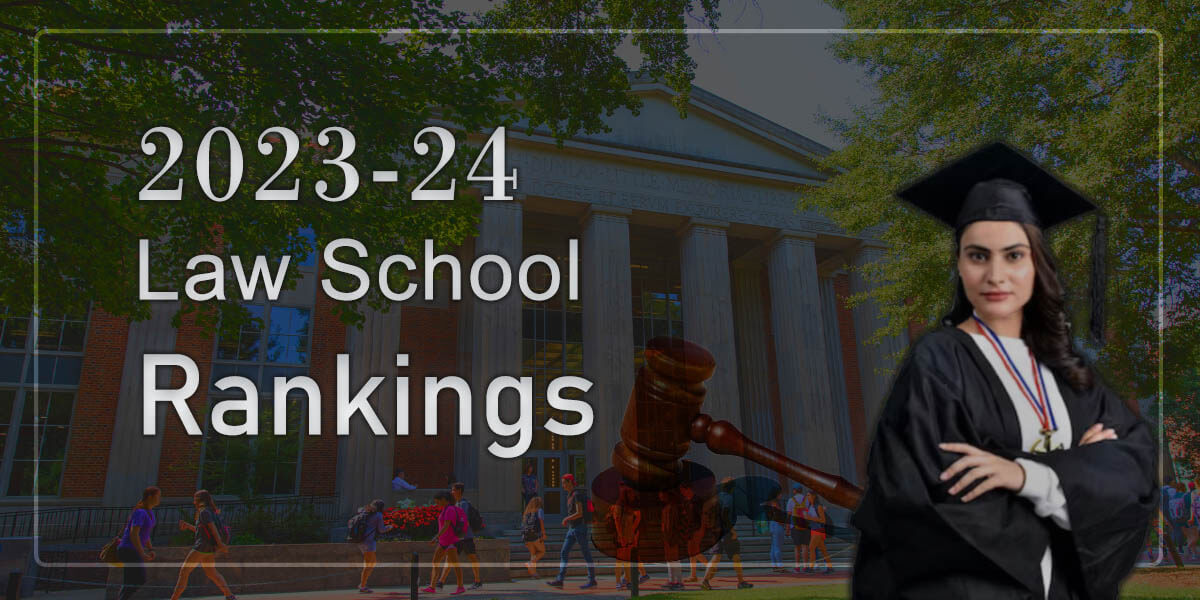As the application season approaches, prospective law students face the critical task of evaluating programs using multiple factors. This comprehensive article guides leveraging Law School Rankings as one consideration among others to discover the best fit.
Types of Law Degrees
The Juris Doctor (JD) earned at any ABA-accredited law school qualifies graduates to sit for the bar exam and practice law. However, specialized degrees like LLM’s for foreign-trained attorneys and J.D. advantages for those with other graduate degrees also exist. Consider degree types suited to career goals like litigation, corporate law, or a dual professional path.
Juris Doctor (JD):
The most common degree is earned full-time over three years or part-time. It grants the ability to take the bar exam and practice law across fields. J.D. programs provide a broad foundation.
Dual Degree Programs:
Options like JD/MBA combine law with business. Others pair law with public policy, international relations, or healthcare administration over four years. They are suited for careers integrating multiple domains.
LLM Programs:
Earned by foreign attorneys or those with law experience seeking specialization or U.S. qualifications. LLM degrees specialize in taxation, intellectual property, or international law lasting one year.
J.D. Advantage:
For those with other graduate degrees wanting law knowledge without total law school commitment. Conferred at select schools, prepared for compliance, consulting, and related non-licensed roles.

Law School Rankings Entry Requirements
Top-ranked programs are highly selective, closely evaluating academic metrics like undergraduate GPA and LSAT scores. However, demonstrate initiative, leadership, resilience, and “soft” skills through the application to bolster candidacy. Optional essays, letters of recommendation, and interviews provide opportunities to convey uniqueness beyond numbers. Some also accept GRE scores instead of LSAT.
Academic Metrics
Top programs assess undergraduate transcripts rigorously, with median GPAs for accepted students typically 3.5 and above. LSAT scores likewise tend to fall within the 161-170 range at elite schools. Applicants should aim higher to account for variance and maximize T14/T20 acceptance competitiveness. If necessary, taking the LSAT to achieve the highest quantifiable score substantially boosts chances.
Personal Statement
Essays provide the first opportunity to convey background, interests, and experiences, demonstrating fit for the school’s mission and culture. Refine a compelling story through multiple drafts, emphasizing why now and why this particular institution. Seek advisor reviews highlighting strengths and refining weaknesses. Authenticity and passion for the law come through clearly.
Recommendation Letters
Identify three writers able to speak to leadership abilities, strong character, and likelihood of success in law school and beyond. At least one academic reference comments on scholarly performance and potential. Others can include employers or those familiar with public service involvement. Give recommenders ample lead time to craft thoughtful, detailed letters directly addressing evaluation criteria.
Soft Skills Showcase
Resumes, interviews, and optional short essays highlight transferable “soft” skills like initiative, resilience when faced with challenges, collaboration, and service through concrete examples. Convey genuine interest in and fit for the school’s mission, curriculum, and opportunities. Answers showcase research into the program and passion for contributing to the legal community.
Alternative Tests
Some top 50 schools now accept the GRE, which is helpful for career-changers and international or non-traditional students better served by this option. Ensure quantitative and verbal sections are prepped equivalently to the LSAT to demonstrate readiness for the academic rigor of legal studies. Consult advisors on demonstrating strengths through alternative tests.

Top Law Schools
Perennial leaders like Harvard, Yale, and Stanford emphasize scholarship, public service, and shaping legal pioneers. Regional powerhouses like the University of Michigan, UC Berkeley, and the University of Virginia offer similar caliber education at lower costs. Other highly ranked options specialize in intellectual property or international law, fitting niche interests.
Ivy League Institutions: Pillars of Excellence
Harvard Law School, Yale Law School, and Stanford Law School have ranked at the top for decades due to immense resources and prestige. With prestigious research and public policy centers, these institutions cultivate leaders who shape legal frontiers globally. Students receive personalized attention from distinguished faculty dedicated to advancing social justice.
Public Ivy’s: Outstanding Value
Regional powerhouses like the University of Michigan Law School and the University of Virginia School of Law match elite educations at more affordable costs. Both place within the top 15 nationally while their public university status maintains reasonable tuition. UC Berkeley, School of Law, similarly excels in areas like environmental law and technology at in-state rates that are competitive with private peers.
Specialized Programs of Note
New York University School of Law and Northwestern Pritzker School of Law rank among the best for intellectual property law. Georgetown University Law Center and George Washington University Law School specialize in government and regulatory practices in Washington, D.C. Meanwhile, schools like Harvard and Yale also house niche centers focused on international law, tax law, and other concentrations.
Read More: National Society of High School Scholars Guide
West Coast Options
In addition to UC Berkeley, the University of Southern California Gould School of Law and UCLA School of Law attract top students to Los Angeles. Both enroll in diverse, impactful classes while offering mentored externship experiences and proximity to major legal markets.
Northeast Prestige
Beyond Harvard and Yale in Boston/Cambridge, Cornell Law School, Columbia Law School, and University of Pennsylvania Law School in New York City consistently rank in the top 14 nationally, known for innovative centers and accomplished alumni.
Understanding Ranking Methodologies
Law School Rankings compiled by U.S. News, Above the Law, and other publications utilize varied metrics prioritizing specific outcomes. U.S. News weighs bar passage rates, employment, selectivity, and resources most heavily, while some emphasize experiential learning and diversity. It’s crucial to comprehend each methodology fully to contextualize Law School Rankings properly.
Examining Multiple Data Points
While Law School Rankings offer valuable data, they portray only part of the picture. Equally important are program strengths, specializations, location, culture, costs, financial aid, and more. Speaking directly with current students, alums, and faculty illuminates these intangible factors critical to determining fit. A school emphasizing public service yet ranked lower could align perfectly with one’s goals.
Evaluating Employment Reports
Legal careers span diverse practice areas requiring varied skill sets. Examine detailed employment reports within desired fields like litigation, transactional work, or public interest for accurate insights rather than relying solely on general percentages. Outcomes also depend significantly on individual efforts like internships, externships, and networking.
Assessing Costs and Debt Loads
Legal education demands weighing investment against potential earnings. Research living expenses, not just “sticker price,” to understand actual costs. Compare average debt burdens to long-term affordability and repayment options. Scholarship negotiation may lower costs substantially. Some pursue lower-ranked yet affordable opportunities.
Emphasizing a Well-Rounded Application
Presenting diverse experiences, interests, and goals through application materials can offset potential weaknesses, as Law School Rankings alone do not determine career success. Demonstrating initiative, leadership, service, and interpersonal skills makes applicants attractive regardless of where they enroll.
Overall, no single factor dictates legal career satisfaction or achievement. With comprehensive research and self-reflection, applicants feel empowered to choose options aligned with their aspirations. Law School Rankings provide practical context alongside many other considerations on the path to a fulfilling professional journey.




